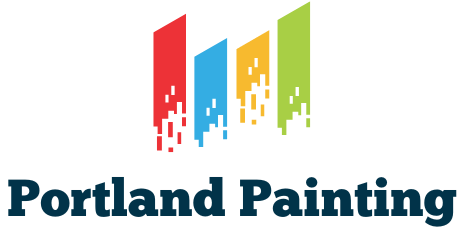
The job market in Singapore is highly competitive and dynamic, making it essential for job seekers to have a thorough understanding of the job market before embarking on their job search. With its strong economy and diverse industries, Singapore offers a plethora of job opportunities for both locals and foreigners. However, navigating the job market can be challenging without the right knowledge and strategies. This article aims to provide a comprehensive overview of the job market in Singapore, including key industries, salary expectations, and job trends. By understanding the job market, job seekers can tailor their resumes, prepare for interviews, build professional networks, and ultimately secure their dream jobs.
Understanding the Job Market in Singapore: A Comprehensive Overview
Singapore’s job market is known for its competitiveness and high standards. The country has a strong economy and is home to various industries and sectors that contribute to its growth. Some of the key industries in Singapore include finance, technology, healthcare, logistics, and tourism. These industries offer a wide range of job opportunities across different levels and functions.
Job trends in Singapore are constantly evolving due to technological advancements and changing market demands. In recent years, there has been a growing demand for professionals in the fields of data analytics, cybersecurity, artificial intelligence, and digital marketing. Additionally, Singapore has been actively promoting entrepreneurship and innovation, leading to an increase in start-ups and entrepreneurial opportunities.
When it comes to salary expectations, Singapore offers competitive salaries compared to many other countries in the region. However, it is important to consider the cost of living in Singapore, which is relatively high. Housing, transportation, and healthcare expenses can be significant factors to consider when negotiating salary expectations.
Crafting the Perfect Resume: Tips and Tricks to Stand Out from the Crowd
A well-crafted resume is crucial for standing out from the crowd in Singapore’s competitive job market. It is important to highlight relevant skills, experiences, and achievements that align with the job requirements. Here are some tips for writing a resume that stands out:
1. Tailor your resume to the job: Customize your resume for each job application by highlighting the most relevant skills and experiences. This shows employers that you have taken the time to understand their needs and are a good fit for the role.
2. Use action verbs and quantify achievements: Use strong action verbs to describe your accomplishments and quantify them whenever possible. For example, instead of saying “Managed a team,” say “Managed a team of 10 employees and increased productivity by 20%.”
3. Keep it concise and easy to read: Singaporean employers value efficiency and clarity, so keep your resume concise and easy to read. Use bullet points, headings, and subheadings to organize information and make it easier for employers to scan.
4. Include relevant keywords: Many employers in Singapore use applicant tracking systems (ATS) to filter resumes based on keywords. Research the job description and include relevant keywords in your resume to increase your chances of getting noticed.
5. Proofread for errors: Spelling and grammatical errors can make a negative impression on employers. Proofread your resume carefully or ask someone else to review it for you before submitting it.
Navigating the Interview Process: From Preparing to Following Up
Preparing for an interview is essential for making a positive impression on potential employers. Here are some tips for a successful interview:
1. Research the company: Familiarize yourself with the company’s mission, values, products/services, and recent news. This will demonstrate your interest in the company and help you answer questions more effectively.
2. Practice common interview questions: Prepare answers to common interview questions such as “Tell me about yourself,” “Why are you interested in this role/company,” and “What are your strengths and weaknesses?” Practice answering these questions confidently and concisely.
3. Dress professionally: Singaporean employers value professionalism, so dress appropriately for the interview. Opt for formal attire unless otherwise specified.
4. Showcase your skills and experiences: During the interview, highlight your relevant skills and experiences that make you a strong fit for the role. Provide specific examples and quantify your achievements whenever possible.
5. Ask thoughtful questions: Prepare a list of questions to ask the interviewer to demonstrate your interest and engagement. Avoid asking questions that can easily be found on the company’s website or through a quick Google search.
6. Follow up after the interview: Send a thank-you email or note to the interviewer within 24 hours of the interview. Express your gratitude for the opportunity and reiterate your interest in the role.
Networking in Singapore: Building Connections and Finding Opportunities
Networking is crucial for finding job opportunities in Singapore. Building a professional network can help you gain insights into the job market, learn about hidden job opportunities, and connect with influential individuals in your industry. Here are some tips for building a professional network in Singapore:
1. Attend networking events: Look out for networking events, industry conferences, and seminars in Singapore. These events provide opportunities to meet professionals in your field and expand your network.
2. Join professional associations and organizations: Joining industry-specific associations and organizations can help you connect with like-minded professionals and stay updated on industry trends.
3. Volunteer or participate in community activities: Volunteering or participating in community activities not only allows you to give back but also provides opportunities to meet new people and expand your network.
4. Leverage social media: Use platforms like LinkedIn to connect with professionals in your industry, join relevant groups, and engage in discussions. Share valuable content and contribute to conversations to establish yourself as a thought leader.
Leveraging LinkedIn: How to Make the Most of Your Professional Profile
LinkedIn is a powerful tool for job seekers in Singapore. A strong LinkedIn profile can help you showcase your skills, experiences, and achievements to potential employers. Here are some tips for optimizing your LinkedIn profile:
1. Use a professional photo: Upload a high-quality, professional photo that reflects your personal brand. Avoid using casual or inappropriate photos.
2. Craft a compelling headline: Your headline is the first thing people see when they visit your profile. Use it to highlight your expertise and value proposition.
3. Write a compelling summary: Your summary should provide a concise overview of your skills, experiences, and career goals. Use keywords and highlight your unique selling points.
4. Highlight your achievements: Use the experience section to showcase your accomplishments and quantify them whenever possible. Include relevant keywords to increase your visibility in search results.
5. Request recommendations: Ask colleagues, supervisors, or clients to write recommendations for you on LinkedIn. These recommendations can add credibility to your profile.
6. Engage with others: Engage with others by liking, commenting, and sharing relevant content. This helps you build relationships and establish yourself as a valuable member of the LinkedIn community.
Job Search Strategies: Where to Look and How to Apply
When searching for jobs in Singapore, it is important to use a combination of job search strategies to maximize your chances of finding the right opportunity. Here are some strategies to consider:
1. Job search websites: Utilize popular job search websites in Singapore such as JobsDB, Indeed, LinkedIn Jobs, and JobStreet. These platforms allow you to search for jobs based on industry, location, and keywords.
2. Company websites: Visit the websites of companies you are interested in working for and check their career pages for job openings. Some companies only advertise their job openings on their own websites.
3. Recruitment agencies: Consider registering with recruitment agencies that specialize in your industry or field of interest. These agencies can help match you with suitable job opportunities and provide guidance throughout the application process.
4. Networking referrals: Leverage your professional network to find job opportunities. Inform your connections about your job search and ask if they know of any openings or can refer you to relevant contacts.
5. Direct applications: If you have a specific company in mind, consider sending a direct application even if they do not have any job openings listed. Express your interest in working for the company and highlight your relevant skills and experiences.
Understanding Singaporean Work Culture: What to Expect in the Office
Understanding Singaporean work culture is essential for adapting to the workplace environment and building successful relationships with colleagues and superiors. Here are some key aspects of Singaporean work culture:
1. Punctuality: Singaporeans value punctuality, so it is important to arrive on time for meetings and appointments. Being late can be seen as disrespectful.
2. Hierarchy and respect: Singaporean workplaces often have a hierarchical structure, with clear lines of authority. It is important to show respect to superiors and follow their instructions.
3. Teamwork and collaboration: Singaporean work culture emphasizes teamwork and collaboration. It is common for colleagues to work together on projects and share responsibilities.
4. Work-life balance: While Singaporeans are known for their strong work ethic, there is also an emphasis on maintaining a healthy work-life balance. Employers often provide benefits such as flexible working hours and wellness programs.
5. Professionalism: Singaporean workplaces value professionalism, which includes dressing appropriately, using formal language, and maintaining a respectful demeanor.
Negotiating Salary and Benefits: Tips for Getting What You Deserve
Negotiating salary and benefits is an important part of the job search process in Singapore. Here are some tips for negotiating salary and benefits:
1. Research salary benchmarks: Research industry standards and salary benchmarks to understand what is considered fair compensation for your role and level of experience.
2. Highlight your value: During salary negotiations, emphasize your skills, experiences, and achievements that make you a valuable asset to the company. Show how you can contribute to the company’s success.
3. Be confident but realistic: Be confident in your negotiation but also be realistic. Consider the company’s budget and the market conditions when discussing salary expectations.
4. Consider non-monetary benefits: In addition to salary, consider negotiating for non-monetary benefits such as flexible working hours, additional vacation days, or professional development opportunities.
5. Understand legal requirements: Familiarize yourself with the legal requirements for salary and benefits in Singapore. This will help you negotiate within the legal framework and avoid any misunderstandings.
Securing a Work Visa: The Essential Guide for Foreigners
For foreigners looking to work in Singapore, securing a work visa is a crucial step in the job search process. Here is an essential guide for securing a work visa in Singapore:
1. Types of work visas: Singapore offers various types of work visas, including the Employment Pass (EP), S Pass, and Work Permit. The type of visa you need will depend on factors such as your salary, qualifications, and job level.
2. Eligibility requirements: Each work visa has its own eligibility requirements. Generally, you will need a job offer from a Singaporean employer and meet certain salary and educational qualifications.
3. Application process: The application process for a work visa typically involves submitting an online application, providing supporting documents such as your passport and educational certificates, and paying the necessary fees.
4. Processing time: The processing time for work visa applications can vary depending on factors such as the type of visa and the volume of applications. It is advisable to apply well in advance to allow for any delays.
5. Renewal and cancellation: Work visas in Singapore are typically valid for a specific period of time and can be renewed if certain conditions are met. If you decide to leave your job or change employers, you will need to cancel your existing work visa and apply for a new one.
Making the Most of Your Dream Job: Succeeding and Thriving in Singapore
Once you have secured your dream job in Singapore, it is important to make the most of it and thrive in your new role. Here are some tips for succeeding and thriving in Singapore:
1. Build relationships with colleagues and superiors: Building positive relationships with colleagues and superiors is crucial for success in the workplace. Take the time to get to know your colleagues, show interest in their work, and be a team player.
2. Seek feedback and continuous learning: Actively seek feedback from your superiors and colleagues to improve your performance. Take advantage of learning opportunities such as training programs, workshops, and conferences to enhance your skills and knowledge.
3. Adapt to the work culture: Adapt to the Singaporean work culture by understanding and respecting local customs and practices. Be open to feedback, embrace teamwork, and demonstrate professionalism in all aspects of your work.
4. Manage work-life balance: Balancing work and personal life is important for maintaining overall well-being. Take advantage of the work-life balance initiatives offered by employers, such as flexible working hours or wellness programs.
5. Set goals and track progress: Set clear goals for yourself and regularly track your progress. This will help you stay motivated, focused, and aligned with your career aspirations.
Understanding the job market in Singapore is essential for job seekers looking to secure their dream jobs in this competitive environment. By having a comprehensive overview of the job market, crafting a well-crafted resume, navigating the interview process, building professional networks, leveraging LinkedIn, utilizing job search strategies, understanding Singaporean work culture, negotiating salary and benefits, securing a work visa, and succeeding in their new roles, job seekers can increase their chances of finding success in Singapore’s job market. It is important to take action, apply the tips and strategies mentioned in this article, and start job hunting in Singapore. With the right knowledge and strategies, job seekers can find rewarding career opportunities in this vibrant and dynamic city-state.



